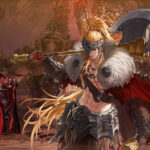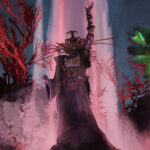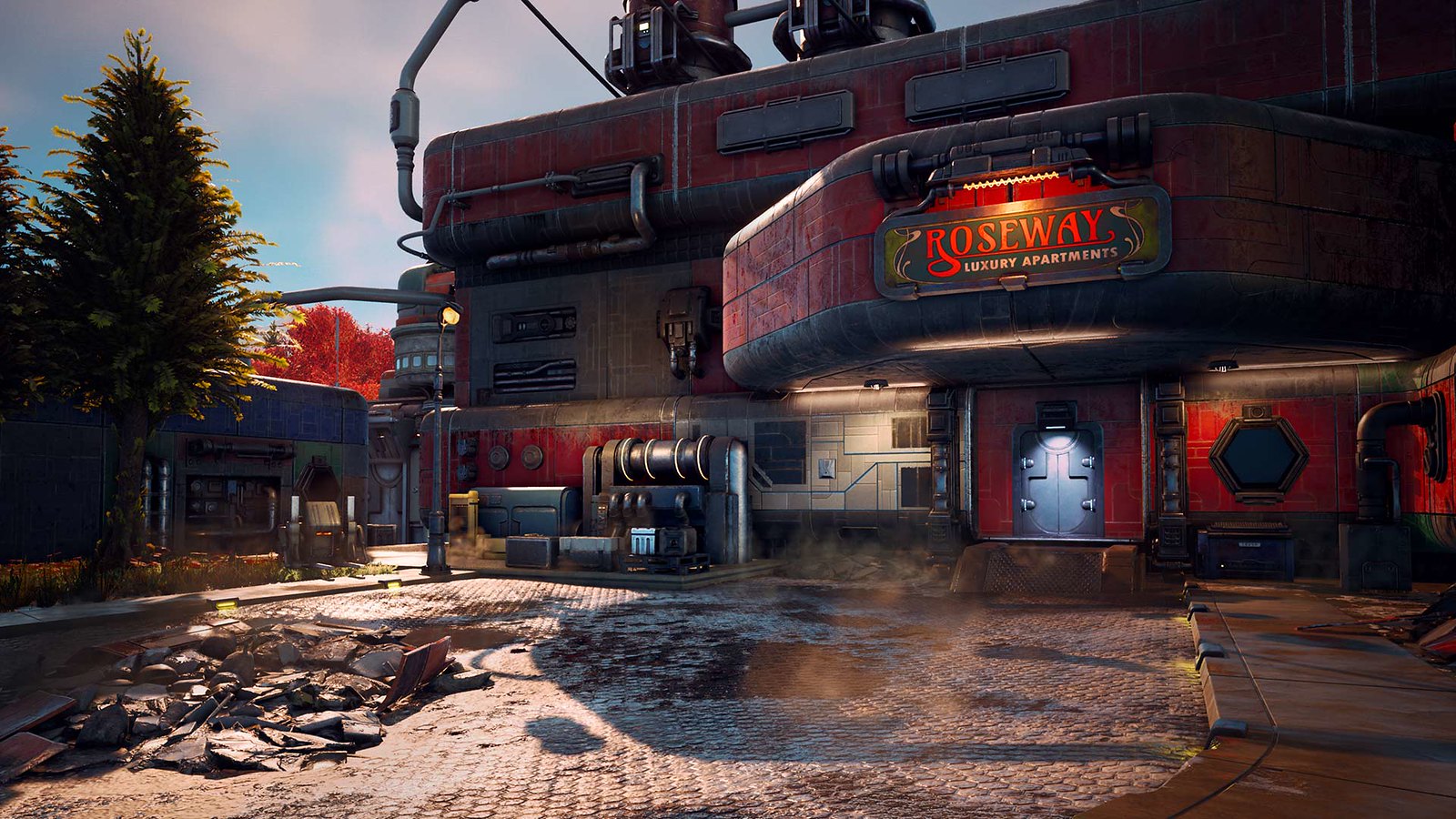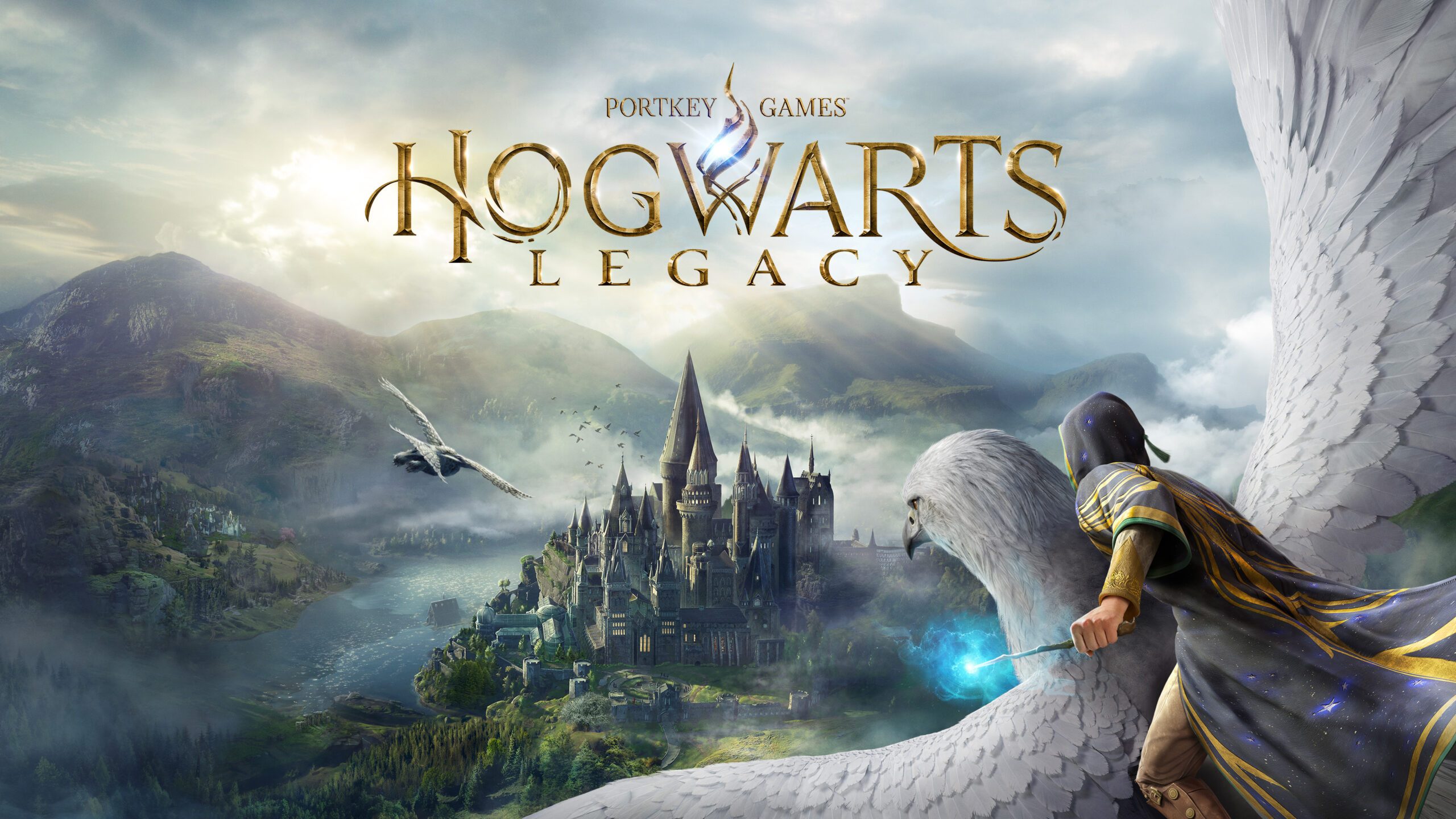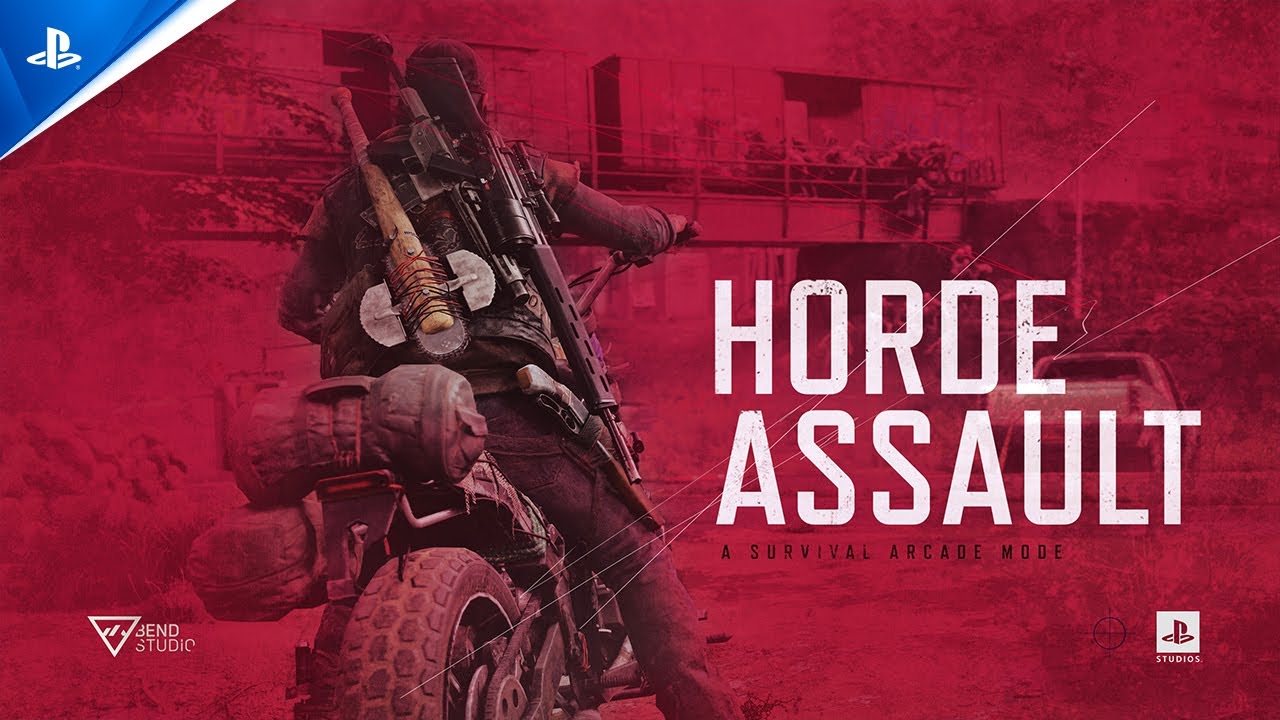Blasting off into The Outer Worlds truly feels like visiting a new, quirky universe. The developers at Obsidian tapped into deep narrative roots to actualize a future where corporations rule the stars with cheesy slogans and shoddy products. Lead game directors, Tim Cain and Leonard Boyarsky, offer insights about bringing this immersive, humorous experience to life.
PlayStation Blog: Why did Obsidian decide to frame society in Halcyon around all-encapsulating capitalism?
Leonard Boyarsky: That came about as a reaction to Tim’s wanting to explore the inherent silliness of corporations and their desire to brand everything. Those initial sillier discussions led to us brainstorming what would happen if those same corporations were in complete control of a society. Which was decidedly not silly.
PSB: From there, how did they decide on the types of schmuck companies? Did you start with Saltuna and work back from there or start from the concept of Spacer’s Choice and then decide the products?
Tim Cain: The first company was Spacer’s Choice, which was a riff on Trucker’s Choice Pep Pills from The Simpsons. I imagined it as a company that made almost every type of product, but none of them were good. But they were cheap. After that, I created a rival company, which was Auntie Cleo’s, and they tried to differentiate themselves as better than everyone else. Other companies quickly followed based on the needs for certain products in the game, like C&P for food, Hammersmith for weapons (oddly enough, they sold no hammers), Brook & Olson for armor, and Rizzo’s for candy and soda. Every time I invented a company, I tried to imagine some rival companies, so Hammersmith had Aramid Ballistics, Joch, and T&L. Each company had something it was known for, like higher condition maximum or more mod slots. Something to make the player get an impression of what each brand was best at.
PSB: What was the process like writing all the marketing slogans?
Tim Cain: I wrote most of the slogans over a short period of time. I usually riffed on existing slogans (like “it’s near this complete breakfast” or “boarst pockets!”). Sometimes I liked to imagine how a nice-sounding slogan would end badly, such as “Tastes fresh because…” I thought of endings like “it’s full of preservatives” or “we inject it with ozone,” but I finally settled on the simple “it was.” I found that the simple slogans really made people laugh.
PSB: How did you flesh out the religions of Scientism and Philosophism? Were there real world inspirations?
Leonard Boyarsky: Scientism started with its name, yet another Simpsons’ reference (their official name, ‘The Order of Scientific Inquiry,’ came later). After settling on that, I began exploring what type of religion could be worthy of that name, and what type of purely materialistic religion the corporations might espouse as a way to remove everything spiritual from their workers’ lives. I’ve always been fascinated by Laplace’s demon, the idea that somehow the entirety of the universe could be divined if only we had enough information, so I worked that in as well in the guise of their ‘Universal Equation,’ their version of their ‘divine right’ to rule.
The name Philosophism came from Theosophy, a turn of the century mystical philosophy/religion, which, except for their shared belief in a personal experience of God, is about where the similarities end. It was designed as a specific answer to Scientism’s ordered, deterministic ideology. We took aspects of various eastern religions and mashed them together to come up with something that was vague enough to be misinterpreted by many people in the colony and was also easy for the Board to turn into something to scare their workers with. It was also designed in such a way that there’d be an interesting gap between it and Scientism that could be filled in by Vicar Max’s spiritual quest.
PSB: Describe how the team went about creating the game’s various companions.
Leonard Boyarsky: With the exception of Ellie and Felix, we started with basic archetypes – the big game hunter, the disgruntled truth seeker, the naïve innocent, etc., and then we put our own spin on them. For Ellie and Felix, we just needed two temp companions who could talk to each other as they followed the player around for our vertical slice, but we liked them so much we decided to keep them.
PSB: What’s the process for writing various companion interaction dialogues? Is there, say, a matrix of the different pairings and how they’ll interact or what topics will come up between them?
Leonard Boyarsky: When we were establishing the companions’ personalities it became pretty obvious which NPCs they’d have issues with and which they’d agree with, including the other companions. Some of their interjections (like Nyoka’s Information Broker interactions) were planned out from the beginning, but many of them were second pass, with the writers running through conversations in-game and picking spots where their companions would naturally interject.
PSB: What are your favorite companion combinations?
Leonard Boyarsky: It’s hard to pick, I like them all for different reasons. Having been the main writer on Max, I’m partial to his pairings with the other companions. I love how they all shut him down whenever they get the chance.
PSB: Which companion / NPC confrontations are your favorite?
Leonard Boyarsky: Again, it’s hard to pick just one. In general, I really like the ones where the companions’ personalities and beliefs are revealed in a quick back and forth, like Felix with Anton, or Max with Graham. Or Ellie and her parents. Or Nyoka and everyone in Monarch. Or…
PSB: Parvati is asexual. Tell us about writing romance for her character and why she was written in that direction.
Leonard Boyarsky: That aspect of Parvati came from her original writer, Chris L’Etoile. After he left the project, she was taken over by Kate Dollarhyde, who continued to expand on those themes. There was no specific directive they were fulfilling; it all came from the characterization they wanted to explore for her.
PSB: Who writes the emails and all the documents found throughout the world?
Leonard Boyarsky: All the writers contributed to those.
PSB: Was there a reason for keeping the Board faceless and mysterious for as long as possible?
Leonard Boyarsky: It was partially by design, partially due to time constraints. The original idea was to limit exposure to them to make them feel more monolithic and impersonal, but a lot of the advertisements and news stories featuring the Chairman we did have planned throughout the game ended up getting cut. So they became even more faceless and mysterious.
PSB: Which joke are you most proud of?
Leonard Boyarsky: There are so many I love it’s hard to pick one. What I’m most proud of, however, is the positive reactions we’ve gotten for our humor overall. It’s impossible to guess how humor is (or isn’t) going to land, but it does feel like a lot of players are enjoying it.
PSB: What is one hard-to-find, narrative-rich side quest that you really hope players find?
Leonard Boyarsky: We’re not telling.
The Outer Worlds is available on PS4 now.





